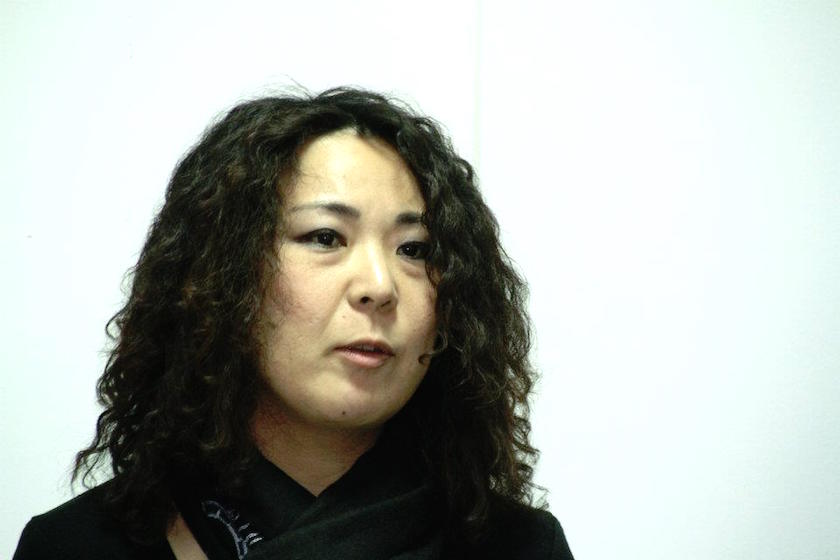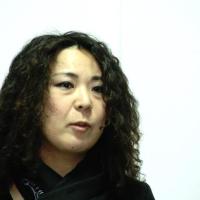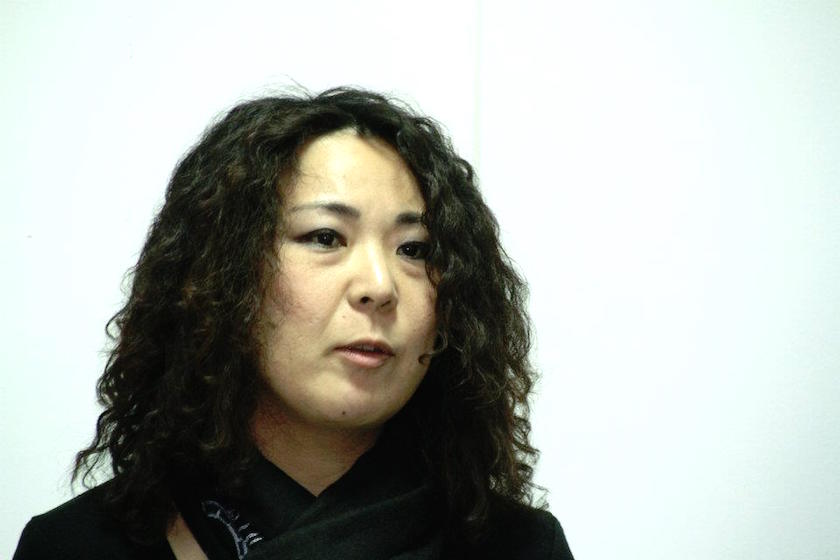
In honor of the first annual Remember Fallujah Week we’ve interviewed a new friend and member of the Coalition, Nahoko Takato.
She was instrumental in sending Baby Bakir out of the country for a lifesaving heart surgery, and her continued compassion for Iraqi IDPs and refugees even after being kidnapped and held hostage is inspirational to many world-wide.
PLC: To start, would you tell us a little about your work in and around Iraq?
Nahoko: In 2003, I went to Iraq for the first time to do emergency relief. I started to study the hospital situations in Fallujah and Ramadi and shared what I found with NGOs and the media. I also worked with some NGOs and distributed medicine and basic items. Meanwhile, I was also very involved with street children in Baghdad.
After my incident in April 2004, I traveled to Jordan every 2 months and continued to support Iraqis. I have been doing medical support for Iraqi refugees in Jordan since 2007, working with Iraqi women who are also refugees, providing medication, supporting costs for surgeries and so on. My Iraqi friends have sometimes taken very important footage, and I bring them to the media and the human rights organizations so they can share it with a much larger audience. When in Japan I go on speaking tours and provide information by showing many photos and videos about Iraq. I really think that one of the most important things for the people is “media literacy.”
PLC: So what is it that motivates you to do this kind of work?
Nahoko: Love: I love all kinds of people, different cultures and ideas. I want to do more.
Responsibility: My country (Japan) has been involved in Iraq invasion, in spite of our Peace Constitution.
Guilt: My country sent troops (Self Defense Forces) to Iraq as “Humanitarian Aid” and was providing military support for US troops rather than supporting/helping Iraqis.
PLC: Could you tell us some of the biggest challenges of your work?
Nahoko: I am interested in reconciliation and peacemaking. Each of my projects or activities are about “repairing the relationship.” I’ve met some Iraq veterans and interviewed them and then brought their messages to Iraqis in hopes of making peace. Also, I had set up the opportunity for the talk between former- US soldiers and former Iraqi soldiers in the international conference and on a Japanese TV program. Japan was really loved by Iraqis before, but we had lost their trust since the Iraq war. Actually, some Iraqis refused our aid because the Japanese supported the invasion and occupation. But we continued to give aid to Iraqis anyway without revealing our names. As a result, we were able to gain their trust and repair our relationship with our Iraqi friends. Now I am preparing for “Peace Talks” between Baghdad University and Keio University in Tokyo. I am seeking for the actual way of reconciliation that leads to real peace.
PLC: It’s incredible that, even after being captured by Iraqis and held hostage, you’ve continued to serve the Iraqi people. How did you endure in the face of such opposition?
Nahoko: The first 3 days I was seriously thinking I might be killed. Firstly, the people of Fallujah surrounded me and demanded to know why Japanese troops came to Iraq to help US troops. And then armed men came and kidnapped us with rockets and hand bombs. I explained to the kidnappers my humanitarian work in Fallujah and Ramadi and told them to ask the doctors in Fallujah general hospital who I am, but the hospital was besieged at that time and inaccessible. So I continued to explain why I came to Iraq and what I did for emergency aid and what I witnessed the victims in Fallujah. Then the armed group recognized I was not their enemy.

I never call those armed people “terrorists.” I know they are victims who had lost their loved ones for no reason. I know they were farmers and ordinary people, but they had made a decision to pick up weapons to get revenge on US troops.
Just before I was released, I was able to have a long, deep discussion with my kidnappers, and I told them : “You’re wrong. You made a big mistake. You are saying that Americans are bad and killers, but now you are doing the same bad thing to me and my family. I really understand your anger and sadness, I can understand why you picked up weapons and were resistant, but I do not agree with this way. This is just encouraging negative reactions. You might be asking for help from the international world, but you have lost many supporters. You’ve got more enemies now because of these kinds of responses.”
One of the kidnappers put his gun on the floor and asked me with tears, “How can I be your friend?” I answered,”I am your friend, that is why I shared my honest feelings with you.” Right before being released our kidnappers gave us bottles of pure honey which is special gift to receive in Fallujah. They said it was for my family.
After I was released and was interviewed by Al jazeera I said that I was too tired and in shock, but I can not hate the Iraqi people. On the other hand, I had many shocking treatments by US soldiers while I was in Iraq. They pointed machine guns at me many times, stopped my car with guns and shouted at me and forced me to lie face down on the road. These were also difficult experiences for me, but I have since contacted many Iraq veterans and have had deep, meaningful talks with them. I lived in America as a student and have many good friendships there.
Even when I was treated very badly or physically hurt, this is never enough reason to hate ALL Americans, ALL Iraqis, or ALL Muslims. I am so honored to work with you, Matt and Jeremy, and with my many American friends, and I am so happy to introduce you to my wonderful Iraqi friends. After the 2004 kidnapping incident, I was spurned by the Japanese government, media and society. That was what really hurt and “killed” me. The armed group in Fallujah could listen to me and did not kill me, but my own people who are not armed never listened to me and “killed” me. That might have been the biggest shock to me, and not really have a deep talk with Japanese people yet. Now I am trying to forgive… I do not want to hate my people, of course.
Last year, I came back to Fallujah and Ramadi for the first time since 2004, and that was the big turning point for me. A whole 5 years after my kidnapping and social rejection and I was facing Iraqis and speaking out for Fallujah victims. I could not communicate with my own people, and I avoided them. I always felt the Fallujah victims were supportive of me and using my mouth to express their sadness. I always remembered the sounds of air strikes overhead during my captivity, and I know more than 700 civilian who were killed at that time. Eventually, I came back to Fallujah and prayed in front of their tombs. Since that moment, I had regained my life left behind in Fallujah.
PLC: This week is “Remember Fallujah Week” and I know you’ve had first-hand experiences in the city. Would you mind sharing with us about your relationship with the city of Fallujah and its residents? What do you envision for the future of Fallujah?
Nahoko: When I came to Iraq for the first time in May 2003, I met some young men who came to Baghdad to inform the international media what was happening in Fallujah. They were so angry and said the media never cared about the outlying cities like Fallujah and Ramadi. They demanded that we come to Fallujah and witness what US soldiers had done there. I went and saw the blood of the victims who were shot, and found many injuries in the hospital. People cried and told me that soldiers never listened to them and shot randomly.
Fallujah’s story is similar to many other cities during the Iraq War, but there are still a lot of secrets. Thousands of people were killed by a chemical called white phosphorus and by many other unknown chemicals there. There are big pressures on the people who are trying to investigate Fallujah, and the international world should commit to remembering and revealing the atrocities that happened in there.
PLC: Thanks Nahoko for taking the time to share your experiences with us (and in your 3rd language!). May your preemptive love for the people of Iraq move us all to a similar compassion for those different from us.
Photo courtesy of Nahoko Takato.


